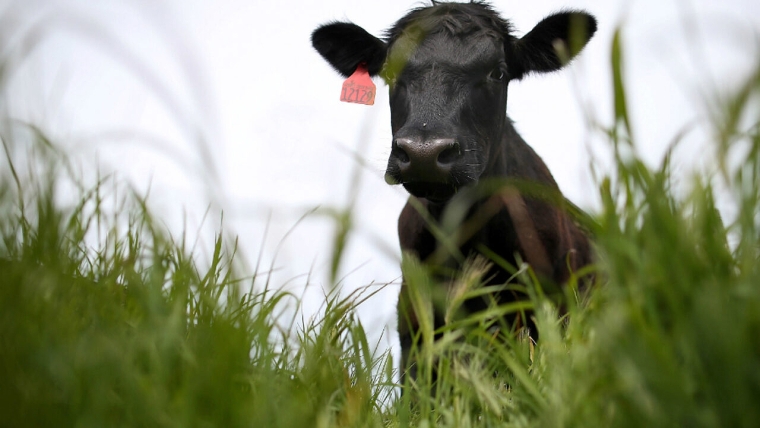
This week we are continuing to explore the research that compares pasture-raised beef and lamb, versus grain-finished livestock, and versus protein alternatives.
On this show is Auckland University's Dr Andrea Braakhuis, who is part of a multi-institute team looking at red meat as a functional food.
Her work is involved in Objective 3 and 4 of the overall studies, involving human trials with acute meal studies.
Objective 3 is investigating the differences observed from diets involving the three alternatives (grass-fed, grain-fed, protein-alternative) in how differences are found in blood, nutrient minerals, inflammation impacts, and appetite/hunger responses. Objective 3 is looking for short-term effects, and involves carefully managed blind trials.
Essentially this work is confirming that not all meats are the same and it depends on how they are produced. Grass-fed gives clear health benefits over the other two via higher long-chain omega-3 polyunsaturated fatty acid levels that benefit heart health.
Objective 4, which is a study still underway, is looking at the longer term impacts.
Listen to the podcast to get the full story and full perspectives.
Angus Kebbell is the Producer at Tailwind Media. You can contact him here.
12 Comments
Grass-fed gives clear health benefits over the other two via higher long-chain omega-3 polyunsaturated fatty acid levels that benefit heart health
Groan - this is a last chance saloon marketing piece. A (225g) beef steak has around 60mg of long-chain omega 3 - roughly the same as a small piece of walnut!
Garçon, please rustle me up a 225g +/- 10% steak with a walnut, mushroom and truffle infused jus, to double my chances of extreme longevity.
Ha! If only the things we liked eating the most were the things that kept us alive.
https://www.ncbi.nlm.nih.gov/pmc/articles/PMC3712342/
Red meat consumption is associated with an increased risk of total, CVD and cancer mortality. Substitution of other healthy protein sources for red meat is associated with a lower mortality risk
The study was prospective cohort-based and that can be problematic. But the results cannot be simply dismissed, and the scientists are experts in this field. The results for processed meats (e.g. bacon) were stronger than for non-processed. There may also have been some confounding between the two with correlated consumption. Personally, I try to moderate the consumption of bacon and I am aware that a blackened barbecue steak is almost certainly carcinogenic. Apart from that, I am prepared to take my chances.
KeithW
Indeed - processed meat is pure poison. I stopped eating meat in the early 90s when I studied environmental engineering and did some modules on sustainability. It was definitely the right decision.
The non-animal protein market is going to be huge on the next decade.
Jfoe,
Each to his/her own. I have never eaten a lot of red meat, but at 76, still really enjoy a small eye fillet or a couple of venison medallions. I have fish a couple of times a week and vegetarian meals at least twice a week. I have always been active and never overweight. However, I refuse to give up bacon entirely.
To me, cooking and eating good food are two of life's pleasures.
Jfoe,
I tend to agree. All of the science I have been able to find says that if you want a good supply of omega-3 fatty acids, then fish is the place to find those fatty acids. Some years ago when I was in London I met up for dinner with a scientist who had been working on omega-3 fatty acids for much of her life, and she reckoned that differences in levels within the steaks from animals fed different diets were not going to be anywhere sufficient to be relevant for human health.
KeithW
So a balanced diet of a coupla steaks ( choice of goat, deer, pig, rabbit, hare) a fortnight, veges from the plot, a cray or two from the pots and a selection of sea perch, terahiki, rigg, cod from around the 70-100m mark, should see a century achieved....
Asking for a friend....
Is this an attempt to make an "A2" meat?
I often get asked whether we should only be eating meat from A2 animals. In contrast to the situation for milk, there is no evidence that A1 versus A2 is relevant to meat.
KeithW
Keith, I did not mean actual A2 meat, but a similar, perhaps certified grass fed, and marketed healthier meat .
Eating red meat is similar to sunlight in that there may be risks in getting too much but there are greater risks in getting too little.
I'd wager few studies have been done on low carb unprocessed red meat eaters who get plenty of exercise.
Type 2 diabetes and obesity present far greater cancer risks than eating red meat.

We welcome your comments below. If you are not already registered, please register to comment
Remember we welcome robust, respectful and insightful debate. We don't welcome abusive or defamatory comments and will de-register those repeatedly making such comments. Our current comment policy is here.